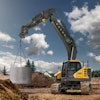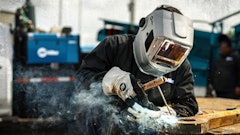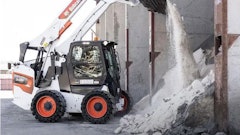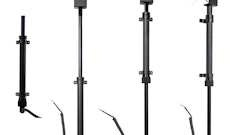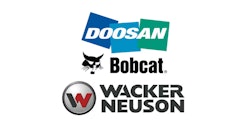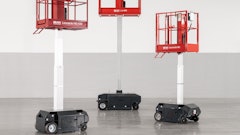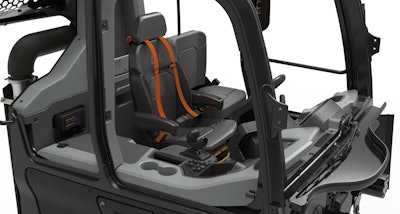
Seasoned equipment operators can probably share a few horror stories about their time behind the controls of heavy equipment when they first started out. For many, working in the chill or heat and dust and ending the shift with aching arms and backs were a normal part of a typical workday. Luckily, things have improved significantly over time.
Operators entering the workforce today have it easy by comparison. Where cabs were once a luxury, they are now standard on many new machine size classes, and are frequently spec’d for others. Features such as adjustable air ride seats with lumbar support and adjustable armrests, pilot-operated controls, ergonomically placed switches and gauges, touchscreen displays and climate control assure an automotive-like atmosphere — and far fewer aches and pains at the end of even an extended shift.
The equipment industry has come a long way when it comes to the operator environment, and it’s destined to go further, and in much less time, as demand for new operators — and the amenities needed to attract them — intensifies. In fact, we’re already seeing the next phase, which literally removes the operator from the cab and lets them get to work without ever setting foot near the machine.
Remote control of construction equipment isn’t a new concept. Suppliers of a variety of equipment types have offered remote control of certain functions on their machines for years. Then, in 2011, Bobcat became the first supplier to officially offer an option for line-of-sight remote operation of skid-steer loaders. Others have followed suit for skid steers and other smaller machine forms, with the goal of removing operators from potentially hazardous work conditions.
More recently the technology has been applied on larger machine types. Starting in late 2015, Caterpillar and later Komatsu introduced line-of-sight remote systems for their larger dozers. In fall of 2016, Caterpillar took this even further and introduced a non-line-of-sight system that allows users to operate a dozer remotely from hundreds of miles away.
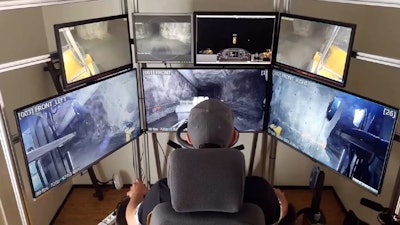 Non-line-of-sight remote control enables the user to work in a controlled environment positioned virtually anywhere in the world.Volvo Construction Equipment
Non-line-of-sight remote control enables the user to work in a controlled environment positioned virtually anywhere in the world.Volvo Construction Equipment
Non-line-of-sight remote control offers perhaps the ultimate operating environment by enabling the user to work in a controlled environment positioned virtually anywhere in the world. John Meese, senior director of heavy equipment for Waste Management, sees remote operation as not just an advancement but as a “problem solver.” If operators no longer have to go into a challenging environment, but instead can sit comfortably at an operator station in an office or trailer, “our operator shortage goes away.”
By removing the operator from dirty, smelly or even hazardous conditions, “we’ve redesigned the role of the operator into something that the new generation finds a lot more palatable,” Meese stated during a panel discussion at a technology conference hosted by Volvo last month.
Technologies such as remote control and automation also appeal to today’s tech-savvy workforce. “By going to automation or remote control, we’re not phasing jobs out,” Meese emphasized. “We’re building new jobs for a new generation… that’s learned to play games. If you get a good gamer, you’ve got a finish operator right off the bat.”

